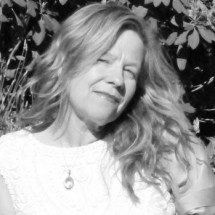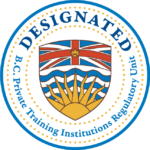InFocus Film School Profile: Film Director and Producer Mary M. Frymire
 Film Director and Producer Mary M. Frymire has fearlessly grabbed the reigns of both Film Director and Producer for over 30 years. Traversing across Europe, South America and Asia, Frymire has worked on projects such as Martinique; Runaway Bay, a documentary about kids changing the world, to directing a 16mm film in Paris exploring cemeteries and catacombs, and moving to Spain to focus on a film about Carmen Amaya and the roots of Flamenco, while also studying Flamenco.
Film Director and Producer Mary M. Frymire has fearlessly grabbed the reigns of both Film Director and Producer for over 30 years. Traversing across Europe, South America and Asia, Frymire has worked on projects such as Martinique; Runaway Bay, a documentary about kids changing the world, to directing a 16mm film in Paris exploring cemeteries and catacombs, and moving to Spain to focus on a film about Carmen Amaya and the roots of Flamenco, while also studying Flamenco.
InFocus wanted to know what it takes to be a successful Film Director and Producer as well as staying focused on projects that are personally important:
You have produced and directed some very interesting and successful T.V. series and films, including “For the Love of Elephants” and “Tribal Police Files.” What is your inspiration and what kind of stories do you like to pursue?
My inspiration is really life itself; people, places, social and cultural milieu. I have a great love of the natural world and also cultural, artistic, social issues and visionary projects. Currently I am wrapping up a series for APTN ‘Tribal Police Files’ an observational documentary series with cinematic recreations. Moving into screenwriting and directing improvised narratives.
Traditionally the role of Film Director and Producer have been quite different and even at odds with each other. How have you tackled this, as a filmmaker who embodies both?
Directing for me is a very focused, almost ethereal state of mind where I access deep levels of intense creativity.
Producing can be also very creative, but I have to access my logistical skills and budgetary savvy. When I do both jobs, they are still somewhat distinct and it’s always interesting when the two roles intersect. One can actually get very creative with a budget.
Having worked on over 400 hours of produced and directed projects, in somewhere around 75 countries working in 4 languages, the creative and logistical parts of my brain are well exercised and often integrated.
How do directors take on this role in a more proactive way? Why should they?
As a Film Director who also produces, it helps both roles to really understand the parameters of what each role entails. It makes one a much more effective director if you know about budgets, equipment and technical logistics.
As a Producer it is of such benefit to understand the incredible creative juice required to build and tell compelling and engaging stories. This mutual respect and support will make the production flow in the best of ways. There can be a symbiotic relationship between these roles and each can only serve to make the other one their very best.
What are the challenges of being a Film Director and a Producer?
It can be a challenge for me to move from my creative aspect into a more logistical framework. I have to always ask myself in each role “is what I am doing serving the story as a whole, or is it leaning towards favouring production or supporting directing?”
It’s a fine balancing act. I love to brainstorm, and collaborate. But when working independently and doing both roles, it can be isolating and insular. When I catch myself going down the rabbit hole, I will reach out and immerse in an industry event or network with colleagues. It is of course, also, a hell of a lot of work to fulfill both roles.
What are the benefits or being both a Film Director and Producer?
Well, one very obvious benefit is financial. As you are financed for both roles. Also, you have creative control of where your resources are best served as a Film Director and of course as a Producer. Often, a Film Director will not have input into the budget if they are not involved in some way in the producing of the project. The interdependence of both roles can serve a project in unique ways.
Mary M. Frymire and the Lowdown on Logistics:
What does it take to pitch an idea?
I love to pitch. I am good at it. I find funders are always looking for fresh ideas and willing to meet and discuss any and all ideas. It’s a tremendously fulfilling process for me and I will forever pitch to support my projects.
How do you create a budget?
Much research, planning, strategizing, outlining is done and the more detailed your planning and strategizing is before you tackle the budget, the more accurate and easy it will be to plan and form your budget. Strategizing facilitates ease with a budget. I use the Telefilm template and for smaller budget projects, the Telefilm micro budget template. These templates are very intuitive and are a tremendous resource for the independent producer.
What about funding?
Funding has to be pursued almost like a full time job in itself. The market is changing so rapidly; independent filmmakers must keep up with funding calls for applications and market trends. I find when I am working on a project, I become immersed and have to really work to stay on top of current calls for funding.
Mary M. Frymire is Director and Development Director at La Sirena Pictures Inc.
Specializing in character-driven, documentary-based subjects, she draws on her cross-cultural experience when developing and directing engaging, visually evocative projects that tell compelling stories. Mary is a Film and Television graduate of Capilano University, and furthered her craft at Simon Fraser University, The Banff Centre for the Arts, and the London Film and Television School, UK. Currently Mary is pursuing her MA in Film with Raindance and Staffordhire Universtiy. She is also an alumna of the Women in the Director’s Chair, Career Advancement Module in Vancouver for her feature film: ‘Epiphany.’






Leave a Reply
Want to join the discussion?Feel free to contribute!